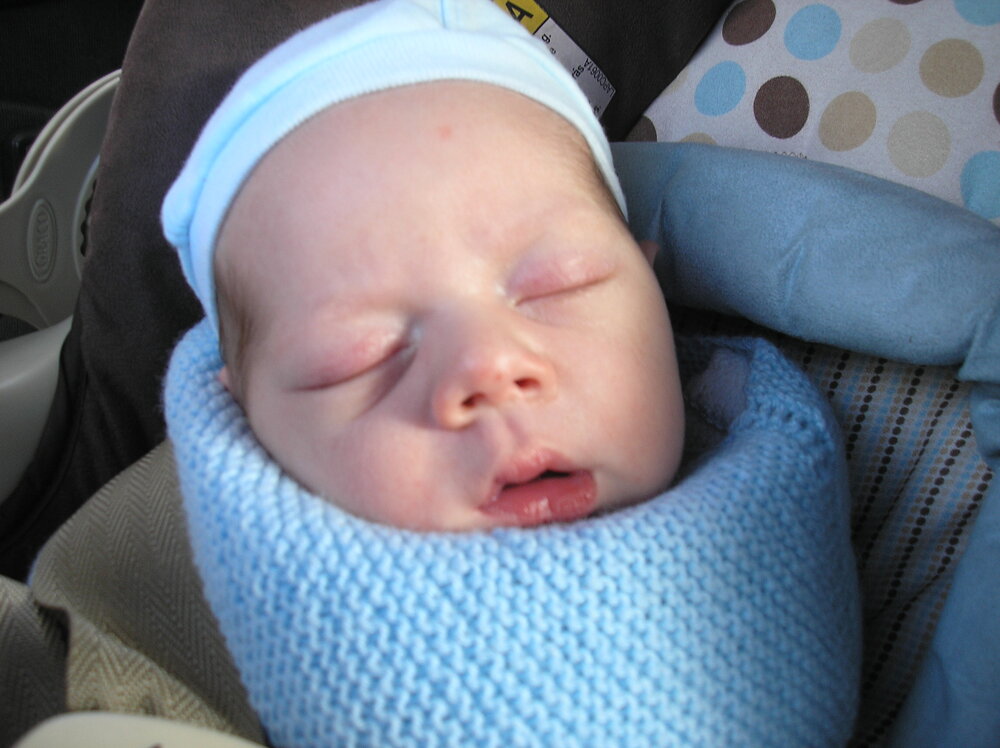I have been working for a few families recently where I have noticed the baby’s head is slightly asymmetrical. In some cases, this is a tiny and natural deviation, but in at least one case, the baby’s head is dramatically flattened, his face bulges on one side and is quite noticeably uneven. It is a subject his mother and I have discussed endlessly. It turns out that flat head syndrome is considered a cosmetic disorder because it does not restrict brain growth or cause brain damage but nonetheless it can be quite disturbing. I know the mother in question will do everything she can to try to correct it in her son.
 It seems that health visitors will carefully inform new mothers about the ‘Back to Sleep’ campaign but rarely mention the possible side effect, flat head syndrome. Insisting that a baby is always put to bed on its back has been very successful in reducing cot deaths, but flattened head has become an unexpected consequence now that babies are spending much of their early lives on their backs on hard flat surfaces, such as cots, car seats, carry cots and baby bouncers. The latest research was based on American infants and found that up to 48 per cent of babies under the age of one developed the deformity. Shocking! Positional plagiocephaly or brachycephaly (flat head syndrome), results in the back or side of the head appearing flattened. The most critical time to be aware of this is during the baby’s first three months when a baby’s skull is at its softest and malleable and a flat spot can quickly develop. It is generally believed that this is purely an aesthetic issue; it does not affect brain development or function and should have no lasting medical effects. But as a mother, is that OK? Your baby is fine, just funny looking… Maybe he will grow hair over that flat bit – or he could wear a lot of hats… wouldn’t you rather he had a regular shaped head? Is this another way for us mothers to feel guilty over yet another thing we have control over?
It seems that health visitors will carefully inform new mothers about the ‘Back to Sleep’ campaign but rarely mention the possible side effect, flat head syndrome. Insisting that a baby is always put to bed on its back has been very successful in reducing cot deaths, but flattened head has become an unexpected consequence now that babies are spending much of their early lives on their backs on hard flat surfaces, such as cots, car seats, carry cots and baby bouncers. The latest research was based on American infants and found that up to 48 per cent of babies under the age of one developed the deformity. Shocking! Positional plagiocephaly or brachycephaly (flat head syndrome), results in the back or side of the head appearing flattened. The most critical time to be aware of this is during the baby’s first three months when a baby’s skull is at its softest and malleable and a flat spot can quickly develop. It is generally believed that this is purely an aesthetic issue; it does not affect brain development or function and should have no lasting medical effects. But as a mother, is that OK? Your baby is fine, just funny looking… Maybe he will grow hair over that flat bit – or he could wear a lot of hats… wouldn’t you rather he had a regular shaped head? Is this another way for us mothers to feel guilty over yet another thing we have control over?
So what can you do? The 'Back To Sleep' campaign, which rightly promotes laying babies on their backs to sleep, has dramatically reduced cot deaths and should always be followed. However, even before you notice (due to sleep deprivation, hormones or just because you are overwhelmed at being a new mother) your baby’s head may be slightly flat already. So try to ensure that bed and car seat time are balanced by giving your baby lots of tummy time when awake; being carried in a wilkinet or other sling relieves any pressure on a wonky skull. In fact any method to try to encourage your baby to put less pressure on the flattest part of his head would be worth trying once there is a flat part of the head – or better get in there before it even becomes a noticeable issue– perhaps a rolled up towel under the side of the mattress to encourage him to sleep partially on his side which you can alternate.
Babies' skulls are made of several bones that aren't rigidly joined and are initially soft enough to be molded. As they get older, these bones stick together and become more rigid. There is a window, then, when a skull can become deformed and also a window where this can be corrected. Another thing to consider is that breast fed babies feed equally on either side, but a bottle fed baby may only ever be fed on one side – so try to alternate to avoid any uneven recurrent pressure.
Helmets, which aim to correct flat head syndrome, are available, but whether they are beneficial is controversial. They are also shockingly expensive. You may wish to consider a pillow designed to release pressure from the baby’s skull. These are Swedish in design and cost about £13 and are specially designed to avoid this issue by supporting the babies head and shoulders without allowing pressure points to occur. One of my mothers got a pillow for her son and swears he sleeps much better now and even seems more comfortable – in addition his head seems to be becoming more symmetrical again. She said to me: "I just wish we had been told about this right from day one. If we had, we wouldn't be trying to correct it now." I have made a point since then of telling my clients about this possibility as early as I can.


 My
My






